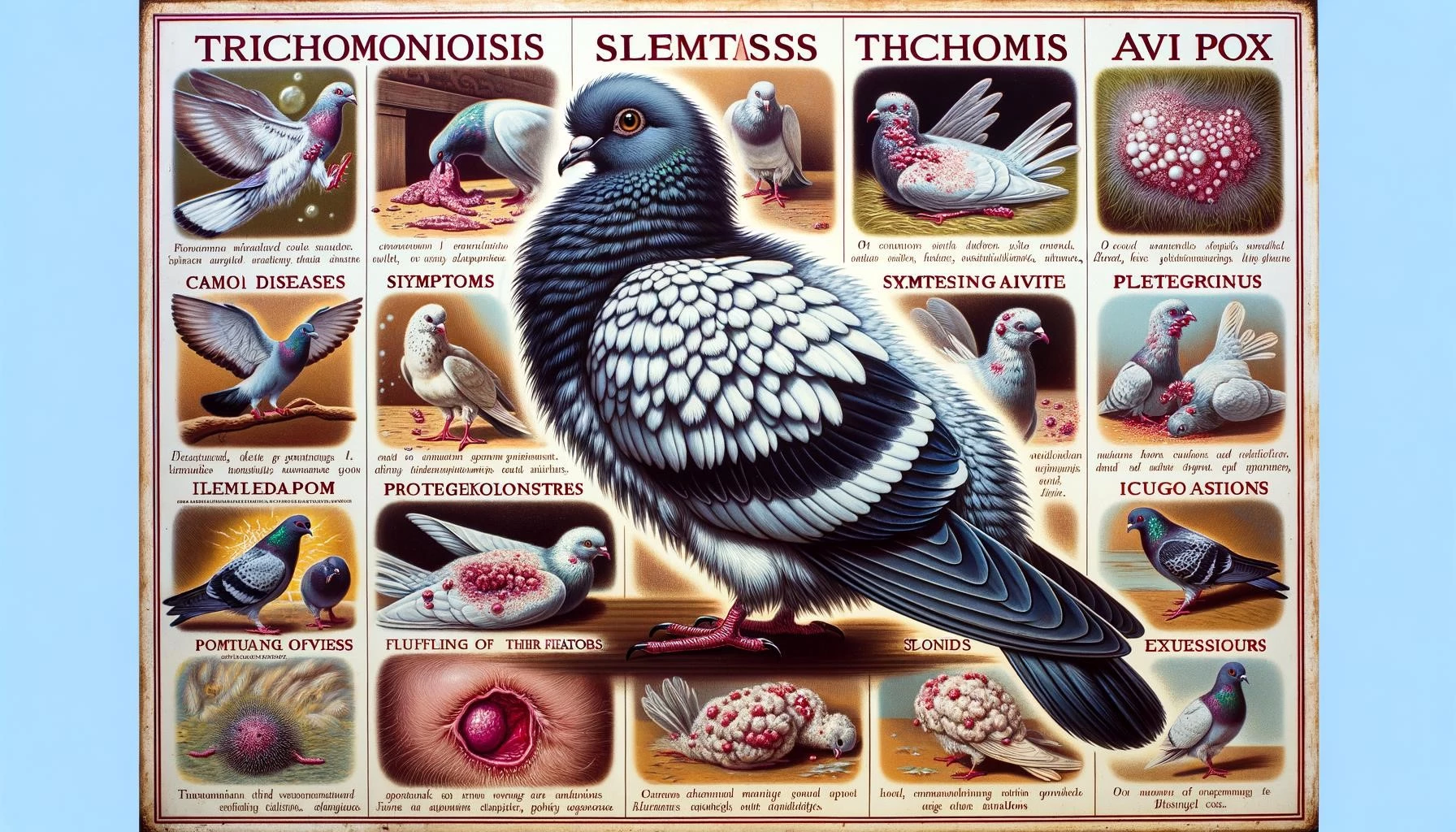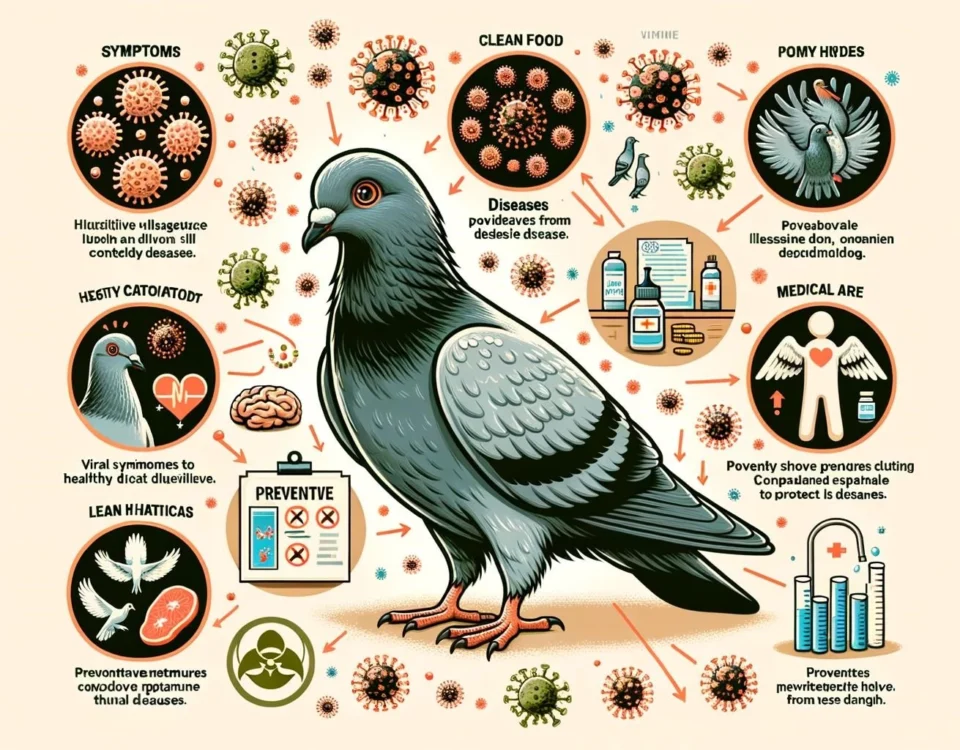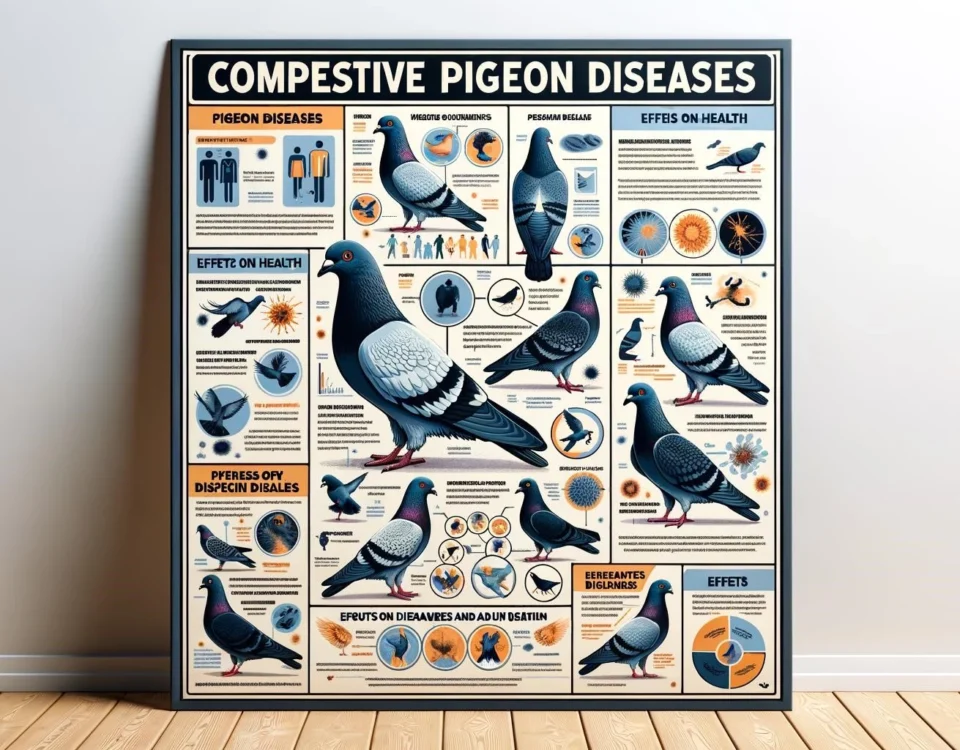Pigeons can be susceptible to various diseases, and stress plays a significant role in their overall health. Stressed, old, and young birds are often more prone to infections and diseases, especially respiratory infections. These infections can impair a bird’s ability to breathe and fly, ultimately affecting its overall well-being.
Key Takeaways
- Stressed, old, and young birds are more susceptible to infections and diseases.
- Respiratory infections are common in pigeons and can make it difficult for them to breathe and fly.
- Different stress parameters, such as the presence of diseases and environmental conditions during racing seasons, can affect the health of pigeon flocks.
Pigeon Diseases
Pigeons can suffer from various diseases that can be detrimental to their health. Some of the most common pigeon diseases include:
Canker (Trichomoniasis)
Canker is caused by a protozoan parasite called Trichomonas. It primarily affects the digestive tract and can cause breathing difficulties, weight loss, lethargy, and diarrhea. Canker is highly contagious and can be transmitted through shared water bowls, feeding young pigeons, or close contact with infected adult pigeons. Treatment involves medication prescribed by a veterinarian.
Worm Infections
Pigeons can harbor different types of worms in their intestinal tract, including roundworms, tapeworms, and hairworms. These worms can cause diarrhea, weakness, increased susceptibility to other diseases, and performance issues. Worm infestations are typically diagnosed through microscopic examination of the droppings, and treatment involves medication that can be added to the water or administered orally.
Coccidia
Coccidia is an intestinal protozoan that causes diarrhea, loss of nutrient absorption, weakness, lethargy, and weight loss in pigeons. It is transmitted through ingesting infected droppings. While small amounts of coccidia are usually acceptable, excessive amounts can lead to symptoms and should be treated with medication prescribed by a veterinarian.
Hexamita
Hexamita is another protozoan parasite that affects the digestive tract of pigeons. It can cause vomiting, weight loss, and bloody diarrhea if it overpopulates the intestinal tract. Like canker, hexamita can be treated with medication prescribed by a veterinarian.
Respiratory Infections
Respiratory infections are highly contagious and can be caused by various factors, including fungi, viruses, bacteria, and mites. These infections primarily affect the respiratory system, including the lungs, air sacs, and sinuses. Pigeons with respiratory infections may exhibit symptoms such as discharge from the nostrils, open-mouth breathing, sneezing, coughing, and decreased activity. Prompt veterinary treatment is necessary to prevent further complications and potential mortality.
Stress in Pigeons
Stress can significantly impact the health and well-being of pigeons. Loft stress, which refers to the pigeon’s resting place, can arise from factors such as overcrowding, high humidity, temperature extremes, and insecurity. High-stress levels can weaken a pigeon’s immune system, making it more susceptible to diseases.
During the racing season, pigeons can experience increased stress from transport and the racing itself. This stress can make them more vulnerable to infections and respiratory illnesses. Environmental conditions and the presence of diseases also contribute to stress levels in pigeon flocks.
It’s important to create a stress-free environment for pigeons, ensuring a clean and spacious loft, regular and predictable routines, and minimizing factors that can contribute to stress.
In conclusion, pigeon diseases and stress are closely interconnected. Stressed birds, especially the old and young ones, are more susceptible to infections and diseases, particularly respiratory infections. It is crucial to maintain a stress-free environment and implement preventive measures, such as regular veterinary check-ups and proper hygiene, to ensure the health and well-being of pigeons.









